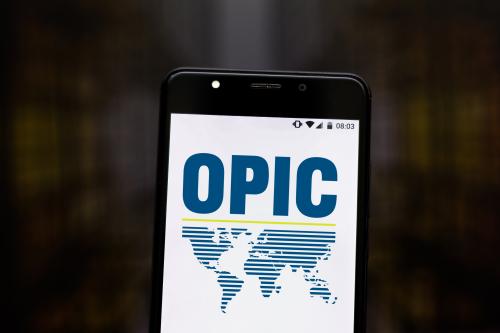If you want to buy an American company, ask permission, not forgiveness.
Unfortunately, that seemingly sound advice may not have reached Ralls Corporation, a Chinese-owned company that named President Obama, Treasury Secretary Geithner, and the Committee on Foreign Investment in the United States (CFIUS) in a lawsuit recently filed in a District of Columbia federal court. Ralls, which purchased four Oregon windfarms near a sensitive Navy flight area earlier in 2012, is fighting government actions that have declared its purchase prohibited on national security grounds.
To understand the mess in which Ralls now finds itself, it’s helpful to start with some background about CFUIS, which is a U.S. government committee “authorized to review transactions that could result in control of a U.S. business by a foreign person.” While pre-transaction CFIUS clearance is not generally required, it is a very good idea in advance of any foreign acquisition of an American company that has even the slightest possibility of raising national security concerns. An acquirer that obtains CFIUS approval can proceed to close the transaction knowing that a safe harbor provision usually protects it from future CFIUS actions. Conversely, when advance approval is sought and denied, the would-be buyer can call off the deal before too much water has flowed under the bridge.
But when foreign buyers decline to seek pre-transaction approval, things can get far more complicated. CFIUS is empowered to unilaterally initiate a review of all transactions – including those that have already closed, and following an unfavorable recommendation from CFIUS, companies may need to unwind acquisitions or otherwise divest the resulting assets. In May 2010, for example, Huawei paid a reported $2 million to acquire intellectual property and other assets from technology company 3Leaf Systems. According to media reports, the news of the deal raised concerns within the Department of Defense, and Huawei was subsequently asked to file for CFIUS approval. After CFIUS recommended against the transaction, Huawei voluntarily divested the 3Leaf assets rather than wait for a presidential order that would almost certainly have forced a divestiture.
When Ralls purchased the four Oregon windfarm companies, there was no operating wind energy business at the sites. There were, however, assets in the form of approved permits to erect wind turbines, easements from landowners, and agreements to connect to the power grid and to other local windfarms. After Ralls completed the purchase, it prepared to install wind turbine generators made in China by a company called Sany Electric.
One of the windfarm locations lies on land directly underneath restricted airspace used by the Navy for low-level aircraft flights, a fact that the Navy observed in a letter to the Oregon Public Utility Commission “may have negative security implications.” The other windfarms are close to (but not under) the restricted airspace. In June, after Ralls had begun construction of wind turbine foundations at several of the sites, CFIUS invited Ralls to submit a filing regarding the purchase. Ralls made the filing later that month, and in late July CFIUS ordered Ralls to cease construction and operations at the sites. Just over a week later, after Ralls informed CFIUS that it intended to sell the windfarms, CFIUS issued a new order prohibiting Ralls from completing the sale without government approval. Then in late September, President Obama, acting on a report received from CFIUS earlier that month, issued an order declaring Ralls’ purchase of the windfarms to be “prohibited” and requiring Ralls to divest its interests within 90 days.
Ralls’ lawsuit contains a litany of charges, including “arbitrary and capricious agency action” and “unconstitutional deprivation of property without due process.” It is also almost certain to fail, most fundamentally because presidential decisions to suspend or prohibit a transaction “that threatens to impair the national security of the United States” are statutorily exempted from judicial review. In addition, as the government noted in an October 29 motion to dismiss the lawsuit, “no well-advised purchaser would proceed with a transaction that raises potential national security concerns without first seeking CFIUS clearance.” To proceed otherwise is to invite exactly the kind of unwanted outcome that Huawei faced with 3Leaf and Ralls now faces with its windfarms.
Given this backdrop, here are some takeaways that prospective foreign acquirers and owners of US assets they are considering purchasing would do well to keep in mind:
First, it may not always be easy to know whether a transaction will raise concerns. If there are Navy jets routinely flying a few hundred feet above a rural site that is part of a contemplated transaction, the potential for government objection may be clear. But many business assets have a less direct tie to national security. Thus, if there is any possible national security implication, however slight, a foreign acquirer would be well advised to make CFIUS approval a condition of closing the deal. Relative to the blizzard of legal work that accompanies most acquisitions, the additional burden to make a voluntary filing with CFIUS is likely to be relatively modest. The safe harbor protections that accompany successful navigation of the CFIUS review process can provide an important boost to the value of the asset.
Second, prospective foreign buyers and American sellers should proactively think about all of the potential applications of the intellectual property and other assets that would be transferred in a transaction, including those well outside the scope of current product lines. Consider, for example, an American startup-up company that has developed sophisticated new data-mining technologies for social networking applications. Initially, that may appear to have nothing at all to do with national security. However, if those technologies can easily be repurposed to efficiently mine data in a military context, then national security concerns could arise in a sale to a foreign buyer.
Finally, companies should not rely on the apparent lack of CFIUS objections in relation to other similar transactions as indicative. If the purchase by a foreign company of your competitor received CFIUS clearance two years ago, that doesn’t mean that a foreign buyer of your company shouldn’t worry about seeking clearance.
In an increasingly globalized market, mergers and acquisitions with an international component are routine, and most foreign purchases of American business assets will raise no national security issues. But for the small fraction that do, it’s in everyone’s interest to find out as early in the process as possible.


Commentary
Op-edIf You Want to Buy an American Company, Ask Permission, Not Forgiveness
November 14, 2012